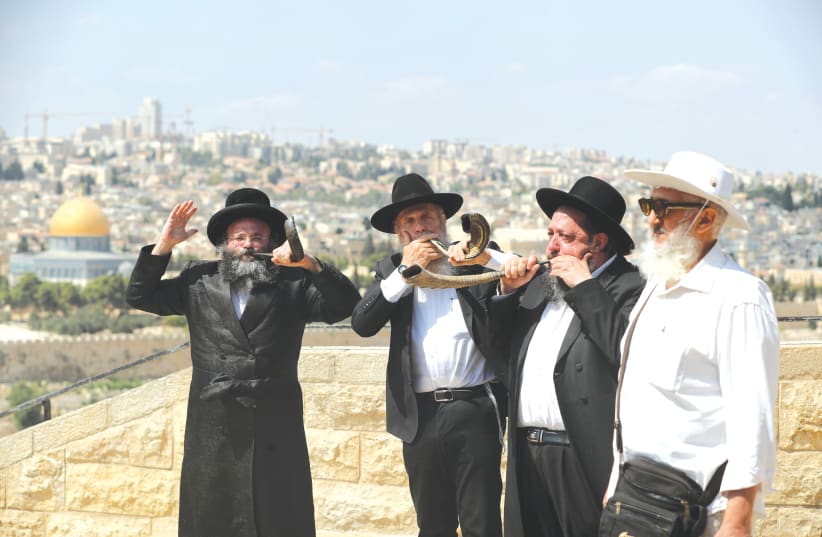Full disclosure: I like Rosh Hashanah. I like the prayers, the tradition, the pomp and the introspection. And for me, the best part of Rosh Hashanah is family – being with a large, extended family. Last year, it was just us, the nuclear family. We were, in essence, alone. This year, gratefully, we will be with THE FAMILY on Rosh Hashanah.
There is a certain sense of relief that we will be together – that we can be together. It is hard to celebrate holidays in isolation. It is a lesson we all learned the hard way, holiday after holiday, a COVID lesson we learned over these past 19 months. Right now, even with the Delta variant upon us and contagions increasing and the clock ticking toward the final moments of the year, it looks like we will be able to celebrate together.
As far as Jewish holidays go, Rosh Hashanah has very little action. We don’t build a sukkah, scour our homes for hametz and sit down to a seder, dance with the torah, don masks or deliver mishloach manot. Almost everything about Rosh Hashanah is synagogue related.
Sure, dipping the apple in the honey is an activity. And some people have a ritual of wordplays called “simanim.” They’re fun and the play on Hebrew, Aramaic and Yiddish is creative and entertaining. For instance, “gezer” in Hebrew means carrot and the same root is used in the word for “gezera,” a verdict. So one wordplay is to eat carrots while asking for a positive verdict in the new year. My grandmother added another twist to the tradition. In Yiddish, carrots are called “meren” and “meren” also means more. So she would look at all the children and grandchildren gathered together and ask that, next year, there be more of us gathered around the family table. We got the message.
While eating honey cake and putting honey on challah instead of salt draws attention to the specialness of the season, it is not what this holiday is all about. This is one holiday where you cannot really do it on your own. You need your synagogue, you need your congregation. And that’s why many more Jews come to synagogue on the High Holy Days than on any other day. The service is long. Many sections are unfamiliar. And yet, we come.
Most Jews I know are critics and almost universally, they love to critique synagogues. They attend services and then they evaluate (a nicer way of saying criticize) the service. While the High Holy Days is the time for us to be judged, everyone seems to become the judge of their services. There is the sermon of course. And it is always too long. There is the singing. Too loud, and where did they find those melodies? There are the other congregants. My, how she’s aged and look who nabbed the front row seats.
Truth is, the measuring stick against which we all judge our present day Rosh Hashanah synagogue service is the Rosh Hashanah service of our youth.
At this significant time of year, a period of introspection – of hopes and fears and internal reckoning – we crave emotional comfort. People prefer the tunes they grew up with. It is comforting to hear those tunes again. Singing along with the tunes we fondly remember makes us feel good and it helps to make the lengthy service more engaging and the hours spent in prayer easier to sit through.
And then comes the shofar. The blasting and humbling sounds of the shofar.
Maimonides writes that the shofar on Rosh Hashanah is like an alarm clock waking us from slumber and urging us to take the right steps and do the right things.
That’s not always easy to do. There is much for which we should be thankful. And there are countless reasons for worry. Crisis after crisis, potential threats to our well-being, to Israel and to Jews around the world. Personal health, finances, family continuity, Jewish continuity. The world is changing. But the holidays are constant.
Whether we are able to celebrate with family or whether we are forced to go it alone, Rosh Hashanah reminds us that we are part of a community. May that community continue to grow, to prosper, to be spared sorrows and hardships. And may we be able to wish each other a Shanah Tova, a good year, this year and next year and for many years to come.
